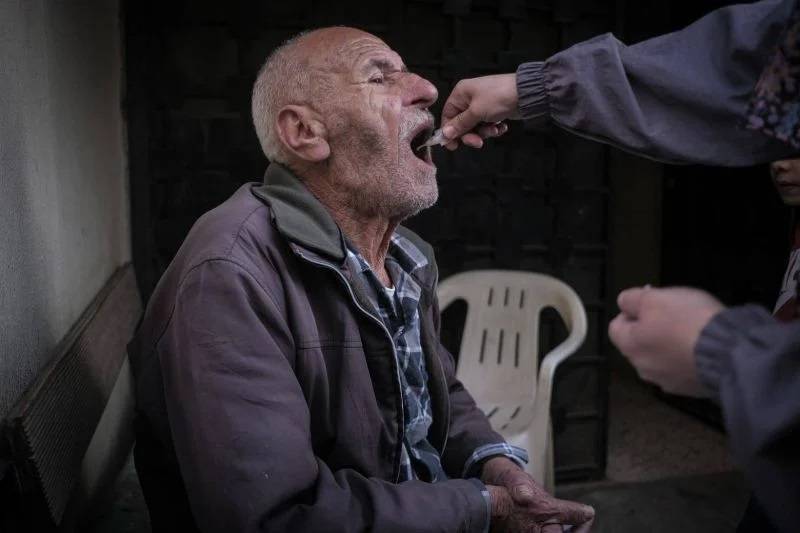
A dose of cholera vaccine is administered during the Health Ministry campaign in Akkar. (Photo: João Sousa/L'Orient Today)
BEIRUT — Lebanon received 900,000 additional doses of cholera vaccines on Wednesday with the support of the World Health Organization and International Coordination Group as part of the vaccination campaign's second phase.
Meanwhile, the country's cholera outbreak seems to be under control, according to a statement by the United Nations Information Center Beirut.
The statement added that the amount of additional vaccines, "funded by the United Nations Central Emergency Response Fund and the Contingency Fund for Emergencies," is only half of what Lebanon is expected to receive.
"With the support of the World Health Organization (WHO) and International Coordination Group, over 900 000 doses of cholera vaccines (50 percent of an additional approved 1.8 million doses) arrived in Lebanon on Wednesday," the statement said.
The country is experiencing its first outbreak of cholera since 1993. Since early October, cholera has claimed the lives of 23 people in Lebanon while the total number of recorded cases stands at 660.
"Among the 20 out of the 26 districts at the national level with recorded laboratory-confirmed cases, Akkar and the North governorates are still recording the highest number of cases," the UN statement said.
Last week, caretaker Health Minister Firass Abiad said the cholera vaccine has been administered to 500,000 people out of the 600,000 targeted by the first phase of the vaccination campaign launched last month. He also said the outbreak "is under control."
"The first campaign began in mid-November 2022 and reached over 90 percent coverage as of early December 2022, targeting refugee and host communities in hotspot areas and regions affected by the outbreak," the UN statement added.
“We’re thrilled to see our collective efforts with the Ministry of Public Health and all partners paying off despite the global shortages in cholera vaccines," said WHO Representative in Lebanon, Abdinasir Abubakar. “There is still more to do, including rapidly activating and supporting the rapid response teams at the field level, improving the water and sanitation situation, strengthening subnational coordination, elevating community engagement, and maintaining a stock of medical supplies and PPE.”
The statement also said that "WHO requires around US$ 11.2 million for the cholera response over 6 months," but that "only 29 percent has been received so far."